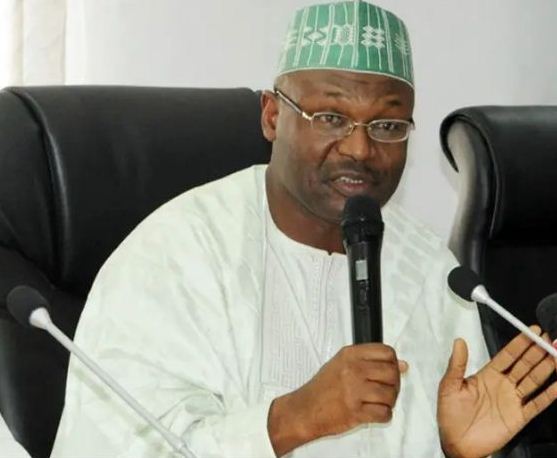EXCITING NEWS: TNG WhatsApp Channel is LIVE…
Subscribe for FREE to get LIVE NEWS UPDATE. Click here to subscribe!
Prof. Mahmood Yakubu, Chairman of the Independent National Electoral Commission, INEC, has explained why elections will not hold in about 240 polling units across 28 States of the federation.
INEC Chairman gave the explanation on Monday, Feb. 13, when he addressed members of the Inter Party Advisory Council (IPAC) at the INEC headquarters in Abuja ahead of the elections.
He explained that the affected polling units have no registered voter.
According to him, with the exclusion of the 240 polling units, election will take place in about 176,606 polling units across the country.
In his words: “There are 240 polling units without registered voters spread across 28 States and the Federal Capital Territory (FCT). They range from one polling unit to 12 polling units in each State and the FCT, except Taraba and Imo States with 34 and 38 polling units respectively.
“No new registrants chose the polling units and no voters indicated interest to transfer to them during the last Continuous Voter Registration (CVR), mainly for security reasons. This means that no elections will hold in these polling units.”
The Commission also warned that it will not accept a situation where two or more party agents report to the polling units and caused confusion. INEC added that any agent found to be engaged in such act will be arrested and prosecuted.
TheNewsGuru.com (TNG) reports that general elections will be held in Nigeria on 25 February 2023 to elect the President and Vice President and members of the Senate and House of Representatives. Incumbent President Muhammadu Buhari is ineligible to run, being term-limited.
Electoral system
The President of Nigeria is elected using a modified two-round system. To be elected in the first round, a candidate must receive a majority of the vote and over 25% of the vote in at least 24 of the 36 states. If no candidate passes this threshold, a second round will be held between the top candidate and the next candidate to have received a plurality of votes in the highest number of states.
The 109 members of the Senate are elected from 109 single-seat constituencies (three in each state and one for the Federal Capital Territory) by first-past-the-post voting. The 360 members of the House of Representatives are also elected by first-past-the-post voting in single-member constituencies.

